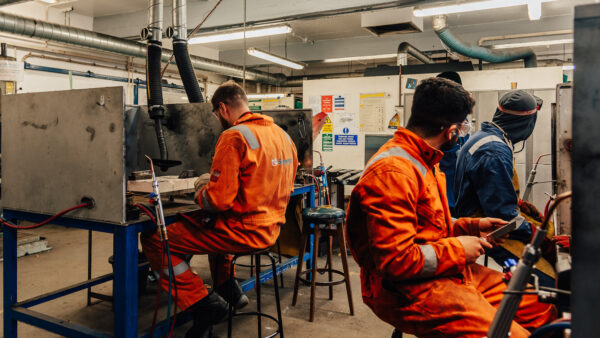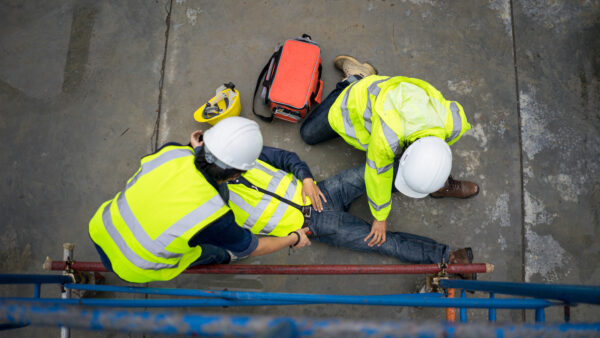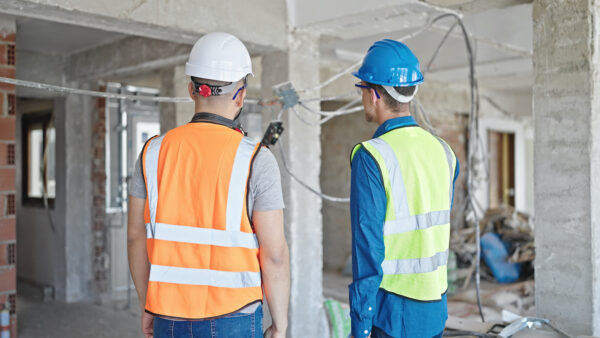
Almost a third of female construction workers have been sexually assaulted in the workplace, according to a new survey from trade union Unite.
The union, which represents hundreds of women in the sector, surveyed them on whether they had experienced sexual harassment while at work, travelling to work, or from a colleague, including during out-of-work hours.
The findings are part of a wider survey polling women members in all 19 sectors where Unite has representation.
According to the data, 31% of women construction workers had been sexually assaulted at work.
Unite also found that 17% had experienced sexual coercion – when a person pressures, tricks, threatens, or manipulates someone into engaging in sexual activity without genuine consent – in the workplace.
The survey, part of Unite’s Zero Tolerance to Sexual Harassment campaign, also found 65% had experienced unwanted flirting, gesturing or sexual remarks, while 70% had been the recipient of sexually offensive jokes.
In addition, 54% said they had been inappropriately touched and more than four in 10 (41%) had been shared or shown pornographic images by a manager, colleague, or third party.
Of those who had been sexually harassed at work, in most occasions it was not an isolated incident. More than half (51%) said it had happened more than twice, while a third (33%) had experienced it more than once.
However, more than three quarters (76%) of respondents said they had not reported these incidents.
‘Damning’ findings
Sharon Graham, Unite’s general secretary, said: “Staff safety should be among the highest priorities for employers in construction but the results of our survey are damning and show women workers are being failed by bosses.
“Nobody should suffer sexual harassment in the workplace. Unite is committed to taking a zero-tolerance approach and we will put every employer turning a blind eye on notice.
“We will fight every step of the way to stamp out workplace harassment once and for all. Every worker deserves a safe working environment and should feel able to report harassment.”
Many respondents working in construction said they did not report harassment they had experienced or witnessed as they worried they would not be believed or it would put their job at risk, while others felt it was not taken seriously when they did raise it.
Just 8% of respondents said the issue was addressed or tackled by management.
Employer responsibility
Jason Poulter, national officer for construction at Unite, said the results of the survey are “very disappointing” and show much more needs to be done to support women working in construction.
“All women in the sector must be protected in the workplace and feel emboldened to report incidents, as well as know they have the full support of their employer that harassment will be dealt with, but this is not happening,” Poulter added.
“Unite stands with all of our women members who have been affected by this and we will work with our women’s officer every step of the way to eradicate sexual harassment from our sector.”
Worker Protection Act
Last October, the Worker Protection Act 2023 became law. This means employers must take measures to prevent sexual harassment from happening in the workplace and at work events, such as conferences.
Unite’s survey found just a quarter (25%) of women working in construction felt their employer had done enough to promote a zero-tolerance culture towards sexual harassment within the workplace following the implementation of this legislation.
As part of its Zero Tolerance to Sexual Harassment campaign, Unite is calling for:
- The introduction of a standalone sexual harassment policy.
- Mandatory training on sexual harassment for all employees and a commitment to recognise union equality representatives with paid time off.
- The deadline for being able to make a claim in an employment tribunal to be extended from three months after the incident occurred to six months as a minimum for lodging a claim.
- The government to put in extra legal protections – for example, third party harassment and sexual harassment should be treated by the Health and Safety Executive as a workplace injury.
Alison Spencer-Scragg, Unite’s national women’s officer, commented: “The Worker Protection Act has not gone far enough in keeping women who work in construction – a very male-dominated sector – safe from sexual harassment at their workplace.
“Employers are not taking their obligations seriously despite the fact it is the law. This is creating a culture where sexual harassment is going unreported, while those who do take the issues forward are left feeling disbelieved, forced to work with abusers and even losing their roles.
“Unite is calling on the government to take our demands seriously to stamp out sexual harassment in construction firms and workplaces.”









